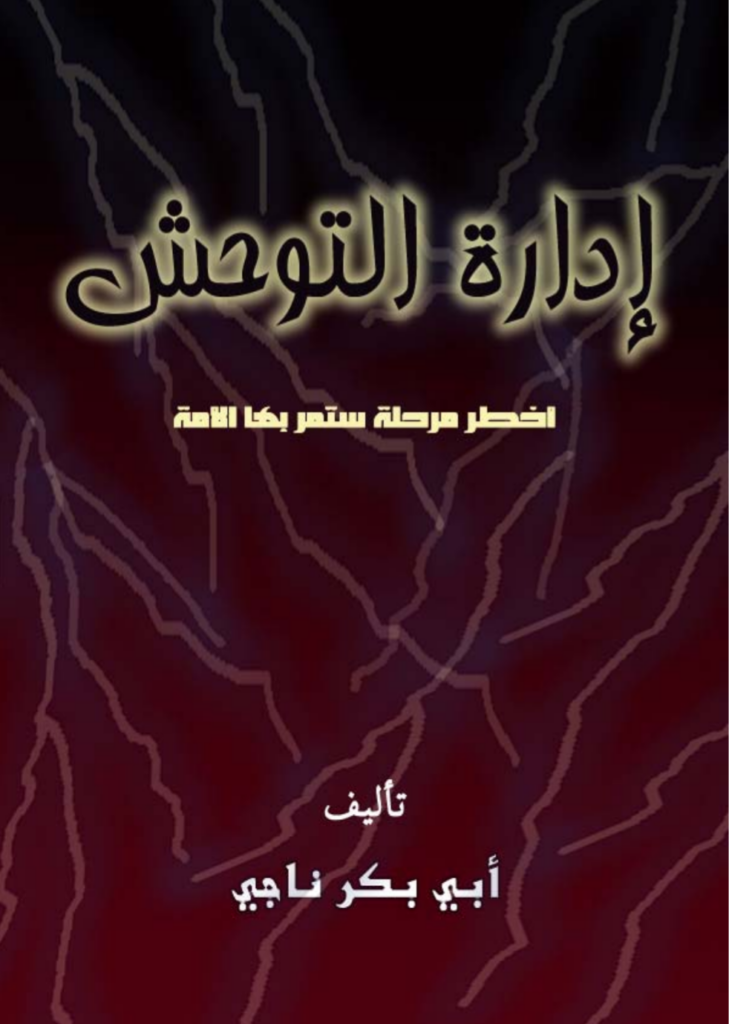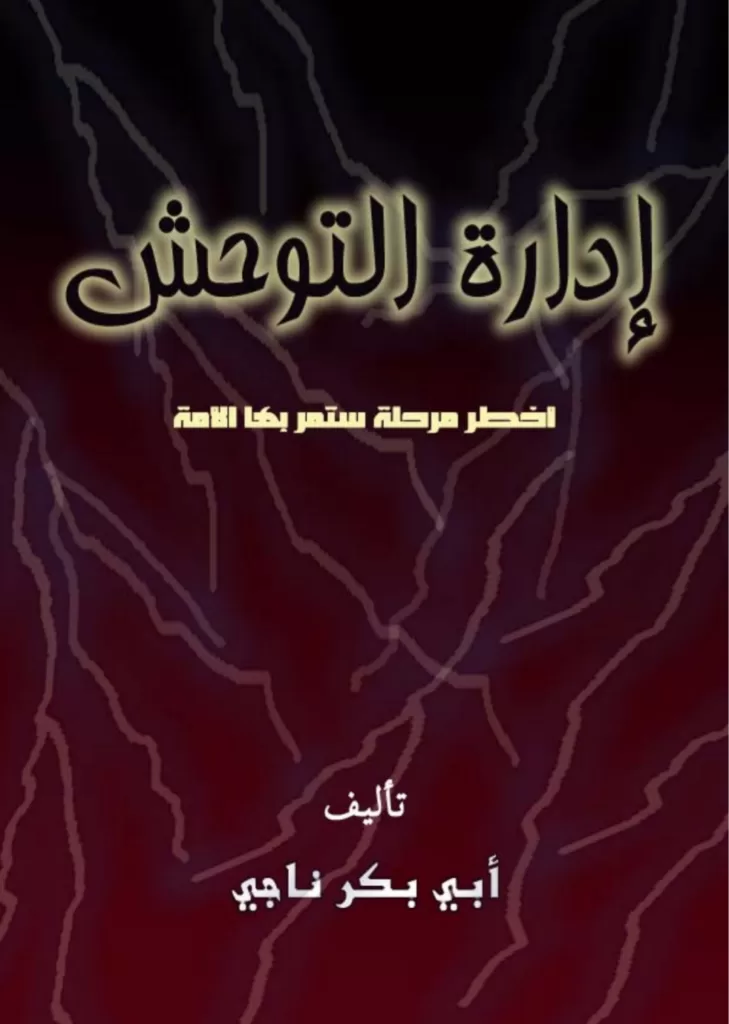The rise of the Lakurawa terror group has become alarming, particularly given its ties to jihadist factions in Mali and Niger, regions long plagued by violence and instability. Initially dismissed as mere herders by local authorities, the group has now revealed its true nature as a well-armed and organised terrorist organisation.
More concerningly, Lakurawa operates in line with the strategies outlined in The Management of Savagery (Idaratut Tawahhus), a jihadi manual by Al-Qaeda ideologue Abu Bakr Naji. The group’s emergence demonstrates a calculated approach: infiltrating conflict zones, exploiting existing divisions and grievances, and establishing a jihadi frontier.
First published in Arabic by Al-Qaeda in 2004 and translated into English in 2006, the manual advocates violent jihad. “If we are not violent in our jihad and if softness seizes us, that will be a major factor in the loss of the element of strength, which is one of the pillars of the Ummah of the Message,” the author said on page 15 of the manual.
This ideology explains why the group destroyed phones owned by locals found to contain music, beat locals for what they considered a sinful act, and even killed a district head in Tangaza, Sokoto State, at his palace. They also attacked military positions between Nigeria and Niger in their attempts to be violent.

Since its publication, this extremist manual has been circulated among jihadists, providing a blueprint for destabilising regions by exploiting ethnic, political, and social conditions to create ungovernable zones that could make it easy for jihadi operations. The book has been banned in many Arab countries, including Saudi Arabia.
Lakurawa’s infiltration shows a perfect adoption of Naji’s playbook to position itself as the only viable authority in areas abandoned by the state. It was a deliberate attempt, as Naji asserts, that “regions with weak central control and underlying ethnic grievances are ripe for the administration of savagery.” Lakurawa has implemented this principle by infiltrating rural areas, displacing local terrorists, and then imposing themselves as new rulers.
In the manual, “savagery” refers to the state of chaos or instability similar to the situation in the insecure parts of Northwest Nigeria, where locals appear to be helpless, that can be infiltrated and managed by the jihadists for a quick implementation of their activities. This is a state of conflict in which the locals seek external support from anyone ready to offer.
At Nigeria’s porous border regions leading to the Sahel, Lakurawa has exploited existing tensions. Initially welcomed for combating pillages, kidnappings, and cattle rustling, the group was invited around 2018 to protect locals in the border area between Nigeria and Niger. However, after fulfilling this role, it overstayed, intermarried with locals, and began recruiting members.
The group has since shifted focus, targeting communities it once protected. By mixing economic incentives with ideological enforcement, Lakurawa has implemented sharia law in the territories it occupies, often under the guise of providing protection.
This appears to be a textbook application of what Naji describes as “polarising society to create manageable chaos.” However, in this case, Lakurawa found an already polarised society in which farmers and herders, especially between Hausa and Fulani, have been in a constant fight and other forms of terrorism have made locals desperate for any form of protection.
In his manual, Naji asserts that “the regions of chaos and savagery allow us to polarise society effectively, setting tribes and factions against each other” and then supporting one group over the other before creating a distinct group based on jihadi principles.
Naji’s prescription for “using violence to provoke responses that justify further actions” is evident in Lakurawa’s clashes with locals. The group collects religious taxes (zakat), punishes dissenters, and enforces their rules with strict societal regulations, such as outlawing modern hairstyles and music.
This aligns with Naji’s concept of creating zones of instability where extremist groups can operate freely. According to Naji, the aim is to destroy the enemy’s control while fostering dependence on the group for order.
“When savagery happens in several regions, whether we administer them or they are neighbouring regions or further away, a spontaneous kind of polarisation begins to happen among the people who live in the region of chaos,” Naji writes. “The people, seeking security, rally around the great personages of the country or a party organisation or a jihadi organisation or a military organisation composed of the remainders of the army or the police of the regimes of apostasy.”
“In this situation, the first step of polarising these groups begins so that they may enter into mutual professions of loyalty with the people of truth by establishing administrative groups that are subordinate to us in the understanding of how to manage the regions which are under their control, along with undertaking proper media propaganda concerning the situation of our regions with respect to the degree of security, justice by means of implementing the sharia, solidarity, preparation, training, and advancement,” he added.
Cross-border Jihadism
Lakurawa’s activities extend beyond Nigeria. Linked to Al-Qaeda in the Islamic Maghreb (AQIM) and Jama’at Nusrat al-Islam wal-Muslimin (JNIM), the group is reportedly part of a smuggling network stretching from Mali to Niger and Burkina Faso, supplying arms and funding operations.
These countries, especially their border areas, have been plagued by insecurity resulting from a myriad of problems caused by ethnic, religious and political tensions.
In Mali and Burkina Faso, for example, the jihadists control a large swath of land where they impose their radical ideologies. The success of jihadi groups in those regions was mostly due to the exploitation of pre-existing tensions and therefore looking for other opportunities to exploit elsewhere. The porous nature of borders in the Sahel also makes the mobility of jihadi operations easier, and therefore, regularly looking for an opportunity to expand by undermining conventional borders.
This cross-border dimension highlights the regional challenge of combating extremist groups. According to security analysts, Lakurawa leverages the porous borders and instability between Nigeria and Niger, much like Naji advises: “An unstable neighbour provides both a buffer and a supply line for the administration of savagery”.
The 2023 coup in the Niger Republic exacerbated the conditions for Lakurawa’s resurgence. With the breakdown of the Multinational Joint Task Force’s operations, the group capitalised on weakened border security to expand its influence.
The Nigeria-Niger post-coup geopolitical tensions made intelligence sharing and joint operations difficult, and that was what Naji said jihadi groups should use as a perfect opportunity to expand: “Political upheaval is an opportunity for embedding operations and expanding zones of chaos”.
Beyond the Kinetic Response
The full-blown violence perpetrated by Lakurawa, including the killing of over ten Muslim worshippers during Friday congregational prayers in November, has drawn significant attention, particularly on social media, with calls for Nigeria’s security forces to intensify operations.
The Nigerian military has deployed airstrikes and ground troops to disrupt Lakurawa’s camps, but these efforts address only the symptoms, not the root causes, of the insurgency. Socioeconomic deprivation and weak governance continue to provide fertile ground for the group’s activities, especially if they continue working on Naji’s manuals.
The Naji’s manual warns of the inadequacy of purely military solutions: “Without addressing the underlying grievances of the people, any victory is temporary. Chaos will return as the people’s anger remains unaddressed.”
